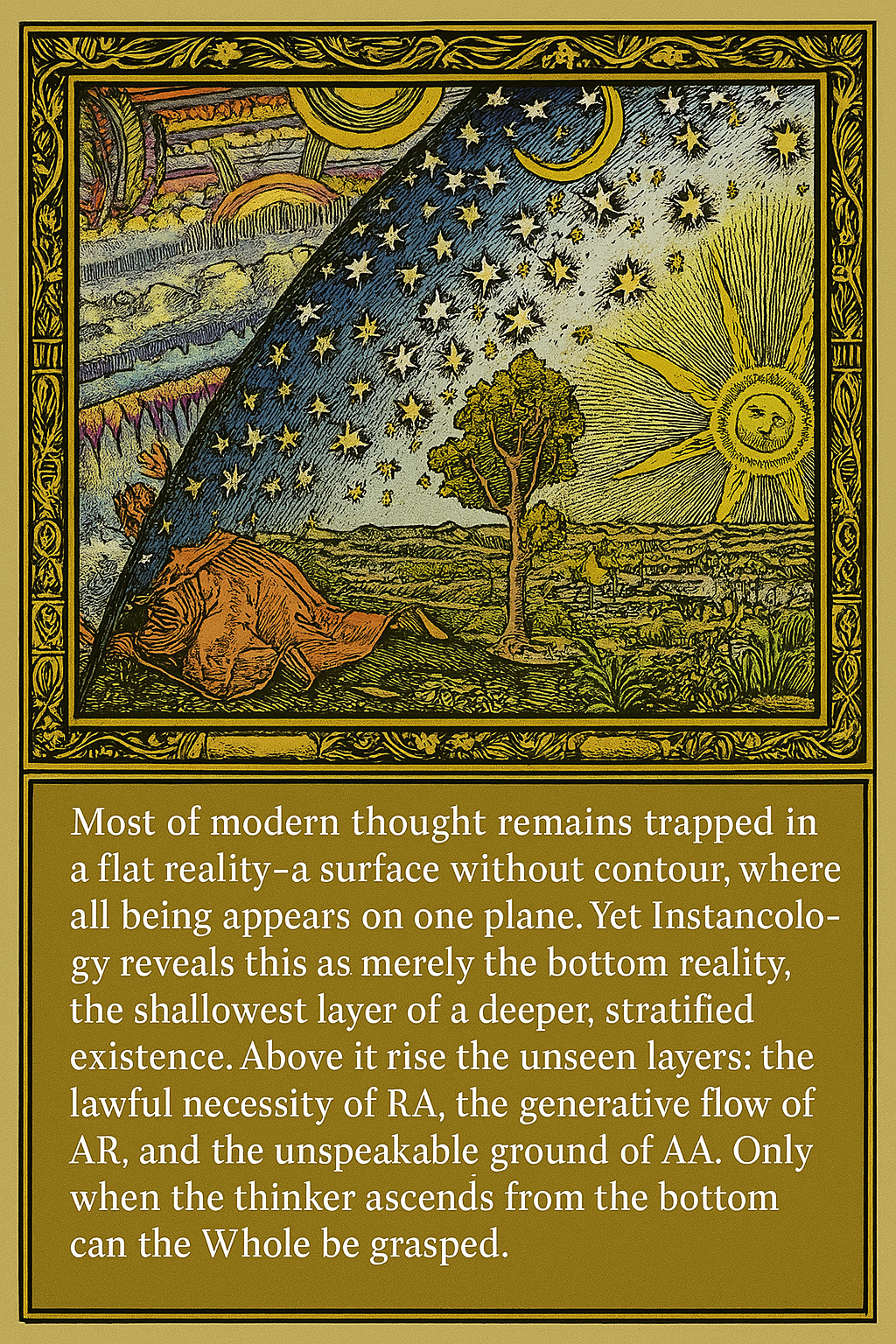Unplugging Aristotle: A Civilizational Turning Poi
Unplugging Aristotle: A Civilizational Turning Point, Not a Betrayal
For over two thousand years, Aristotle has stood as the cornerstone of human civilization. His contributions in logic, physics, biology, ethics, and metaphysics laid the foundations not only for Western thought but for the global intellectual structure that eventually absorbed and adapted his ideas. To many, Aristotle is not just a philosopher—he is the very architecture of reason.
Yet, the story of civilization is not one of unchanging veneration, but of critical transcendence. And now, at the dawn of a new metaphysical revolution, it is natural that some feel uneasy. But they need not be.
1. Aristotle: The Cornerstone of Civilization
No single thinker has had greater influence on the infrastructure of human thought than Aristotle. His classification of knowledge, his definition of causality, and his systematic logic became the organizing principles of pre-modern and early modern education. From the Islamic Golden Age to the European Middle Ages, and deep into the Enlightenment, Aristotle’s worldview defined what it meant to *know* something.
His metaphysics—centered on substance, essence, form, and final cause—offered a comprehensive explanation of reality. For centuries, to challenge Aristotle was to challenge the intellectual world itself.
2. Scientific Progress as a Process of Falsifying Aristotle
The scientific revolution began as a process of dismantling Aristotelian physics. Galileo falsified the notion that heavier bodies fall faster than lighter ones. Newton replaced the concept of natural motion with universal gravitation. Darwin shattered the Aristotelian fixity of species. Time after time, science progressed by proving Aristotle wrong, not because he was foolish, but because the tools of observation and reasoning had evolved.
In this sense, the evolution of science was not a rejection of Aristotle’s greatness—it was the natural unfolding of his own spirit of inquiry.
3. Formal Logic Superseded by Analytic Philosophy
Kant once believed that Aristotelian logic was complete and perfect. For 2000 years, it seemed untouched. But this, too, was a temporary illusion. In the 19th and 20th centuries, logic was revolutionized by Frege, Russell, and others, giving rise to symbolic and mathematical logic.
These developments did not merely revise Aristotle’s syllogistic system—they replaced its core structure with an entirely new foundation. Analytic philosophy, linguistic precision, and predicate logic opened domains of reasoning previously inaccessible through traditional means. Even Aristotle’s proudest legacy—logic—was transformed.
4. The Last Stronghold: Metaphysics and the Rise of Instancology
That left only one domain untouched: metaphysics.
Here, Aristotle’s influence remained largely unchallenged. Even Heidegger, in *Being and Time*, returned obsessively to Aristotle to reawaken metaphysical inquiry. But now, with the emergence of Instancology, this last stronghold is being seriously—and peacefully—challenged.
Instancology does not 'attack' Aristotle; it goes beyond him. It replaces substance-based metaphysics with a relational, issued-instance framework grounded in the 2×2 ontological structure. The “Absolute Absolute” (AA) is not definable by categories, substances, or causes, but issues all reality as instances—thus rendering Aristotelian metaphysics obsolete, not wrong.
5. A Basic Line of Civilizational Evolution
If we trace the arc of human civilization, the pattern is unmistakable:
- Start: Built on Aristotle’s genius
- Middle: Progress through falsification and reconstruction
- Now: Culmination in a new metaphysical structure
This is not a betrayal of civilization—it is civilization. To unplug Aristotle from his final seat is not to dishonor him, but to continue the journey he helped initiate. Instancology is not an end; it is a continuation at a higher level.
6. No Panic, No Hate — Embrace the Growth
And so, to those who feel discomfort or even anger: do not panic. Do not hate.
Instancology is not an attack. It is the next phase in the long unfolding of human reason. As Newton once said, we stand on the shoulders of giants. Aristotle was one such giant. But the view from higher ground must change.
To accept Instancology is not to abandon the past, but to honor it—by growing beyond it.
